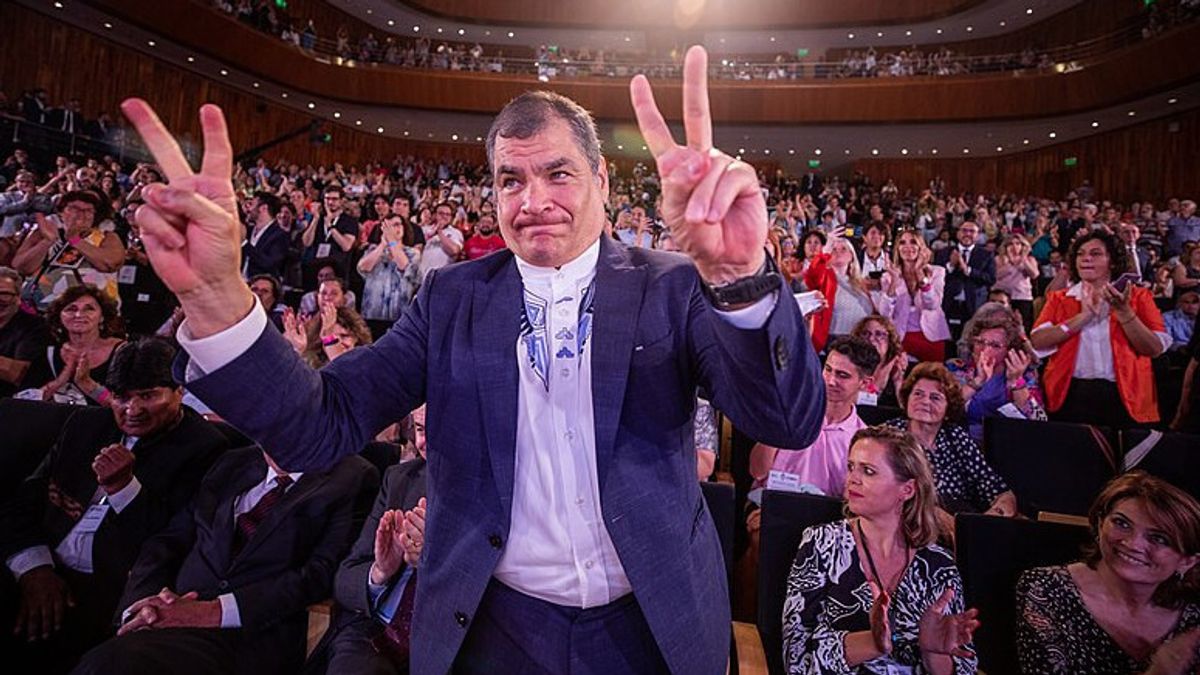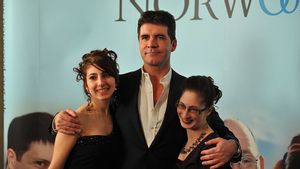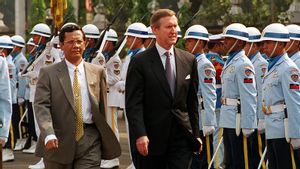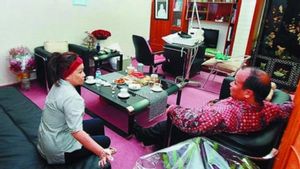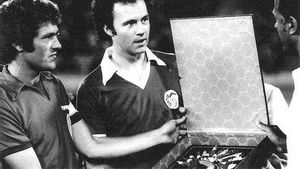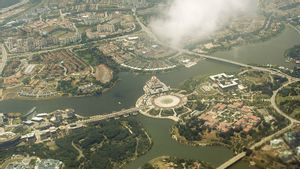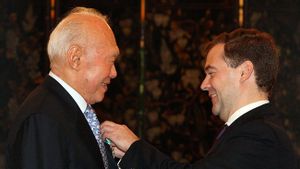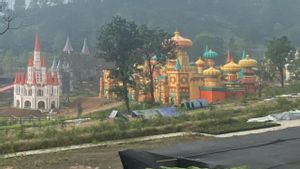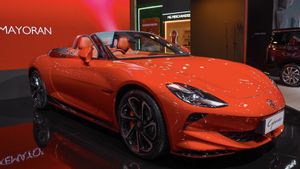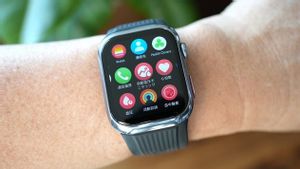JAKARTA - The figure of a leader who can stand above all groups is once considered rare. However, not for Ecuador. The country in South America once had pro-people leaders. Rafael Correa, his name.
His actions as President of Ecuador from the 2007-2017 era are admired throughout the country. He was able to take advantage of Ecuador's natural wealth to boost the lives of Ecuador's people. This condition makes many Ecuadorian people have hope and leave the drug business.
Rafael Correa's name was once popular throughout Latin America. The figure has been aligned with the big names of progressive Latin American leaders such as Hugo Chavez (President of Venezuela era 1999-2013) to Evo Morales (President of Bolivia era 2006-2019).
All because Correa's leadership received full blessing from the people of Ecuador. Correa's footprint was seen when he served as Minister of Economics and Finance of Ecuador. It may be that his position is quite short, from April 20 to August 8, 2005, but his work has made an impression on the people of Ecuador.
The four months were used by Correa to defend the people. The policy he applies solely to reduce poverty and increase economic growth. He chose Ecuador to be more inclined to cooperate with fellow Latin Americans like Venezuela, than the United States (US).
This condition makes Correa an easy target to get rid of. Instead of the dismissal making Correa's political career loosen, Ecuadorian people actually supported her to advance to a higher level. Many of Ecuadorian politicians are also doing the same.
Ulam's beloved pinnacle arrives. Correa was elected President of Ecuador in 2007. The victory was because Correa, who left 80 votes out of 130 seats in the constitutional council. His leadership as Ecuadorian number one began.
He was able to increase the lives of Ecuador's people and brush off corrupt officials. He was able to formulate foreign debt and natural resources (oil and natural resources) to make pro-people policies.
SEE ALSO:
He used the instrument to equalize the economy. The construction of supporting facilities for economic equity is perpetuated everywhere. He built many schools, hospitals, and universities. The development left Ecuadorian people out of poverty.
Between 2005 and 2017, Ecuador witnessed a remarkable transformation, when millions of people came out of poverty, following a wave of oil price explosions that benefited the president at the time, Rafael Correa. Figures known as a left-wing start channeling oil profits to education, health services, and other social activities.
"Suddenly, the leaders of households to stonemen believed that their children would finish high school. They then hoped the children would become professionals, and live a very different life from the lives of their parents," said Julie Turkewitz in her article on The New York Times entitled How a Peaceful Country Became a Gold Rush State for Drug Cartels (2023).
Correa realized that the availability of jobs in Ecuador was quite low. He also started a breakthrough. He began to increase the lives of Ecuadorian people by opening up many jobs. After that, Correa focused his energy on the fight against drug trafficking that is detrimental to the country.
The narrative is not an empty message from Belaka. Correa is well aware that his country has become a popular transit place for the drug trade of cocaine from Colombia and Peru. This condition is because the government in Ecuador is less assertive and easy to bribe.
As a result, poverty attracted the interest of many Ecuadorian people in the black business. Correa also wants changes. A series of legal products were prepared. The deployment of police and military to take firm action against those who are in the drug business is being mobilized.
All of this was done to break the chain of the spread of the drug business. The recitation takes firm action against drug trafficking and the government's greatness in creating jobs is considered successful. This condition makes the people of Ecuador have hope for a better life, without having to enter the puddle of the drug business.
This condition lasts as long as Correa leads Ecuador. Problems arise when Correa is no longer in power. Ecuador is like a return to the factory setting. The welfare gained in the Correa era was like an expensive item.
Correa's actions against drug trafficking were also not carried out massively and the people returned to their lowest point. So they again believed that the drug business was the only way out of poverty. A thought that had been thrown away by the Correa era.
In Colombia and Ecuador, the government supports the discourse of drug reform also implementing a 'war' against drug trafficking, stressing the destruction of drug use sites through military means, heavier sentences, and large-scale police/military deployments. In Rosario, Argentina, major military operations to tackle growth and drug trafficking organizations took place in 2014.
In Ecuador, the narrative of drug resistance was once at its lowest level. The government had accommodated 4,000 prisoners categorized as light drug crimes. However, not during Correa's tenure. An increase in penalties related to drug crimes continues. In 2012, President Correa announced the presence of training to 4,000 soldiers to fight crime and drug trafficking. At the same time, he also supports policies such as confiscation of drugs for personal purposes, "said Maria Duran Martinez in the book Transforming the War on Drugs: Warriors, Victims and Vulnerable Regions (2021).
The English, Chinese, Japanese, Arabic, and French versions are automatically generated by the AI. So there may still be inaccuracies in translating, please always see Indonesian as our main language. (system supported by DigitalSiber.id)
